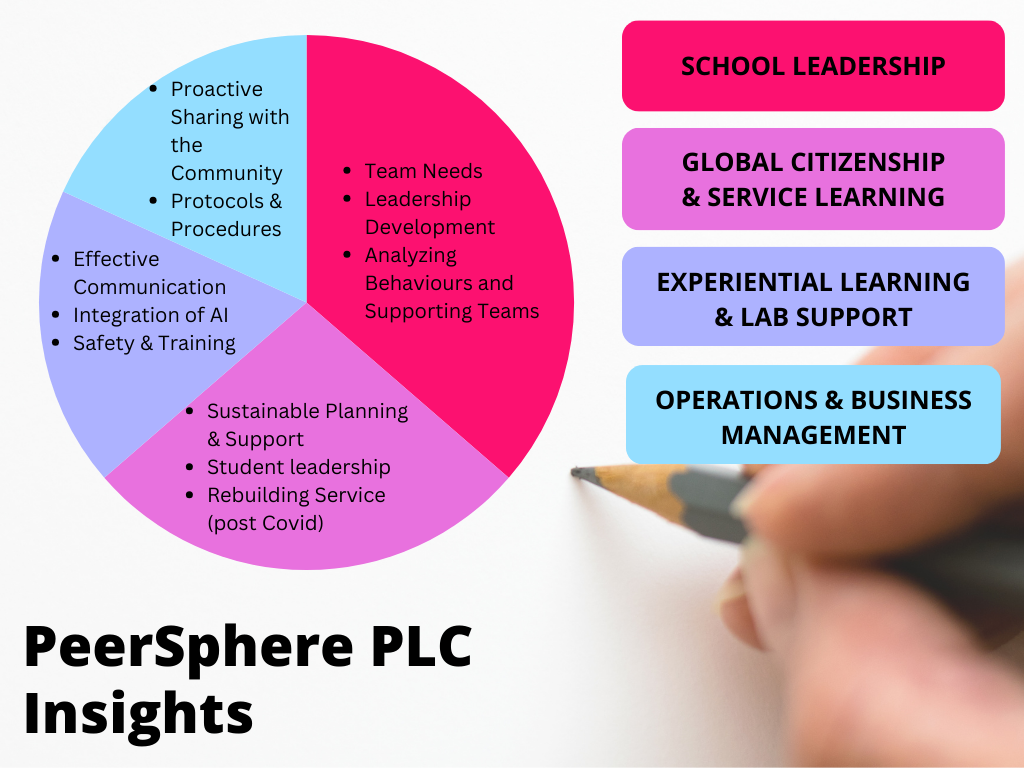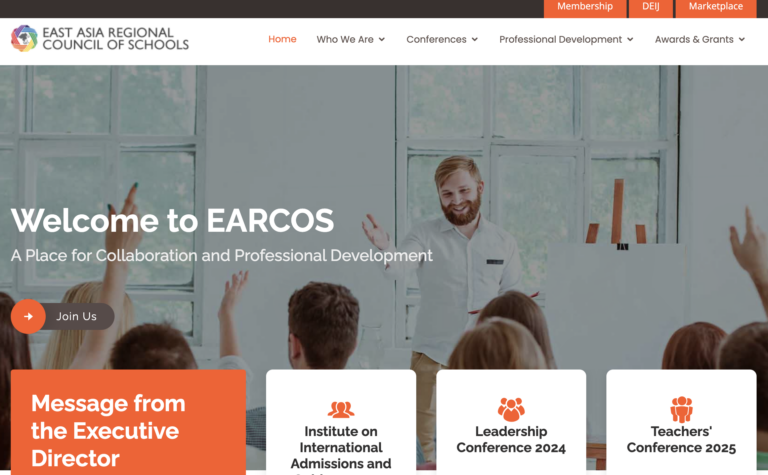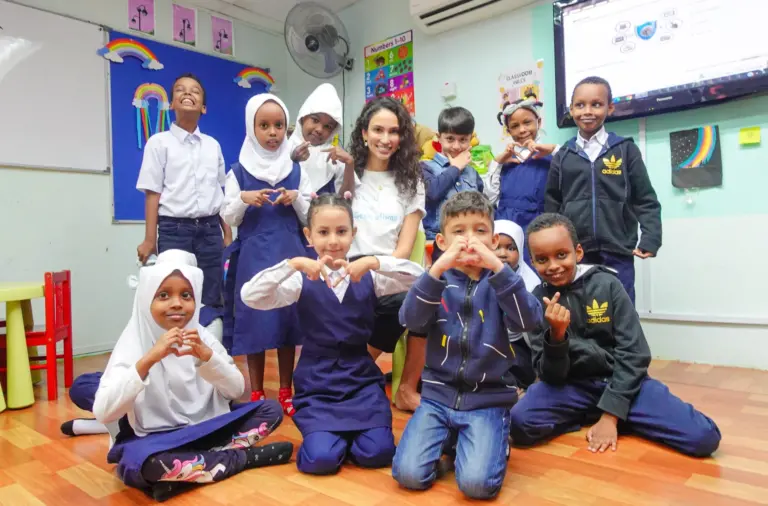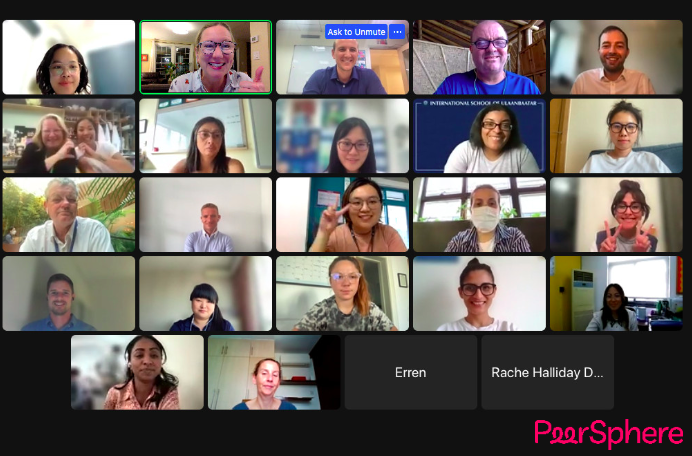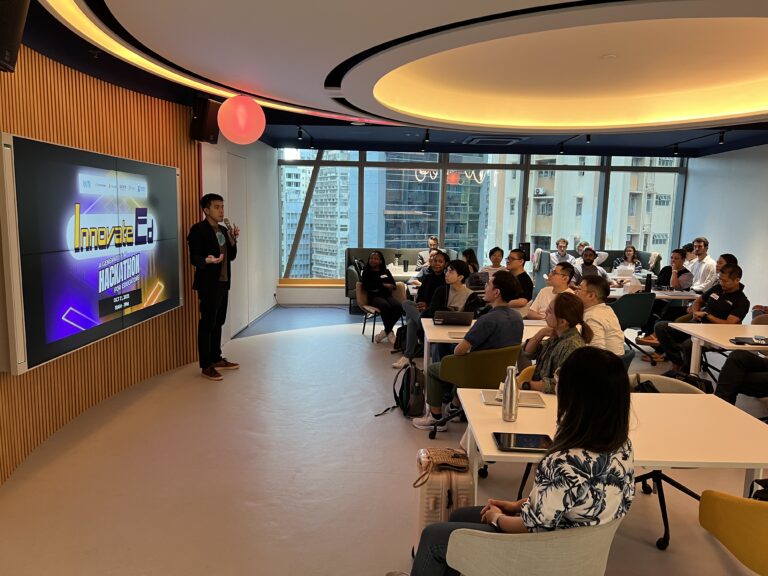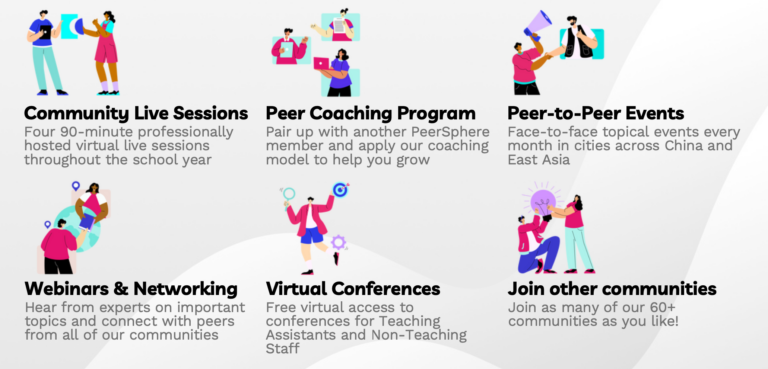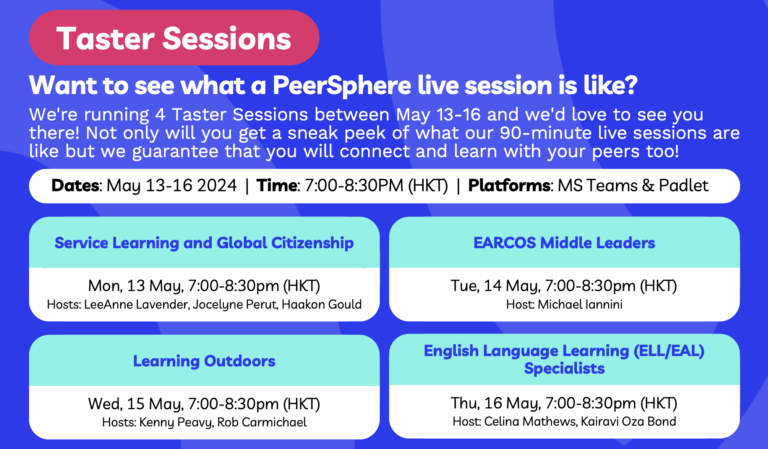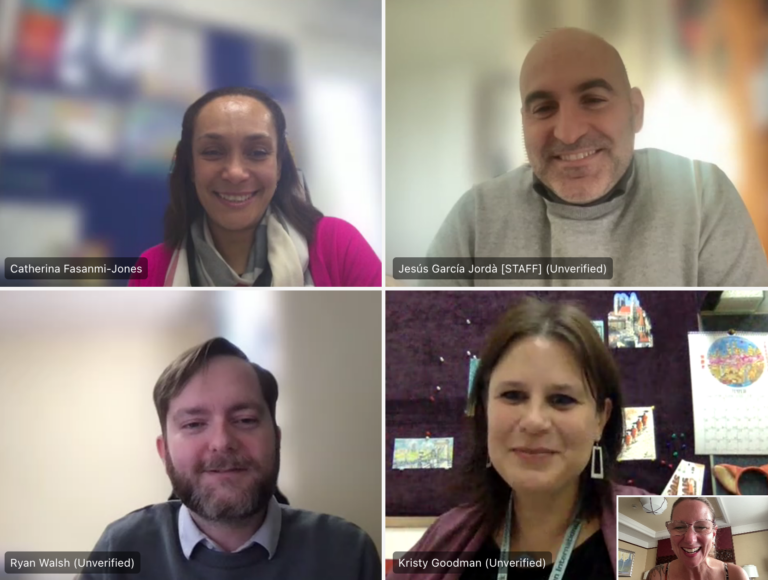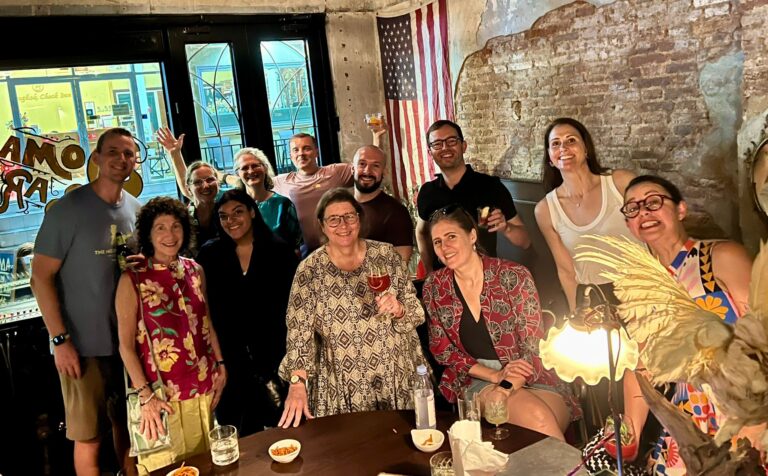By LeeAnne Lavender, PeerSphere Storyteller
PeerSphere peer learning community (PLC) hosts recently submitted feedback about the top ideas and takeaways in their communities so far, and the themes that have emerged from that feedback point to what’s on educators’ minds in 2023/24.
The impact of PLC sessions has been deep. One participant wrote: “[During live sessions] We can share experiences and learnings, and push ourselves in authentic ways to think critically about our experiences and our goals (short-term and long-term) professionally and personally and take steps to reach them and be accountable.”
Another participant said: ““It is a great place to learn from educators like me, to share successes, and to be inspired.”
In terms of topics that have been important in many PLCs, tech integration and AI have surfaced in many conversations, along with reflective leadership, sustainable and strategic planning, and student engagement and leadership. In several PLC communities, there are meaningful and impactful conversations happening where educators are learning from and with each other in relation to these important themes.
The following bullet points not only reflect specific feedback from PeerSphere hosts, but also the questions and topics that may shape professional development at schools in the coming months.
Here’s what people are talking about in PeerSphere PLCs…
School Leadership:
- Reflection on Team Needs: Leaders should focus on the broader needs of their teams beyond just administrative tasks, fostering purposeful dialogue and understanding their role in motivating the team towards its purpose.
- Leadership Development: It is vital for leaders to continuously learn from their teams and use these insights to improve leadership skills, particularly by focusing on how they can positively impact the team’s performance.
- Behavioural Assessment: Utilizing tools like the Workplace Behaviour Assessment helps in understanding team dynamics and in planning how to interact with the team more effectively, especially when facilitating meetings with diverse personalities.
Global Citizenship & Service Learning:
- Sustainable Planning and Support: Long-term success in service learning and global citizenship requires sustainable planning and empowering both students and educators to lead in these areas.
- Student Voice and Leadership: It’s crucial to nurture student leadership and voice in service learning. This includes making space for student growth and helping them develop a mindset that avoids causing unintentional harm in the community.
- Rebuilding Service Learning Programs: Post-COVID, there’s a need to reassess and improve service learning programs. This involves a deep evaluation of community partnerships and engagement principles.
Experiential Learning in Labs and Beyond:
- Effective Communication: At the start of the school year, establishing a solid teacher-student relationship is key, as is participating in department meetings and providing timely feedback. Being part of teacher teams and communicating well is key.
- Maintenance and Safety: The responsibility for the maintenance of experimental equipment and the safe disposal of waste is shared between technicians, teachers, and students. Practical training for specific tools and devices is important.
- Integration of AI: Incorporating AI tools such as Chatgpt into daily workflows can be beneficial, but it’s also important to be aware of AI limitations and to consult professional services where necessary.
Operations and Business Management:
- Encouraging team members to step out of their comfort zones to share and lead in the school community is important.
- Managing school operations for summer projects and capital investment is vital.
- Developing processes to support students living by themselves is a growth area.
How can these themes help you understand professional development needs at your school? How can these ideas impact your team or your colleagues?
One easy way to use this information is to survey your colleagues and ask them if these themes resonate with them, and what they might add to this list. This can then shape the type of professional development you might offer for your staff this semester or next year.

